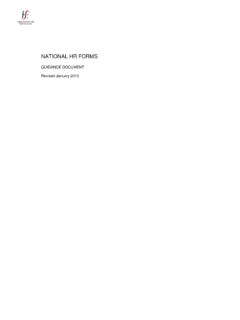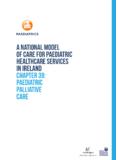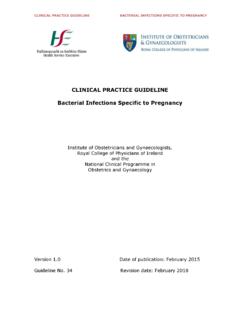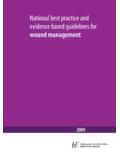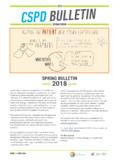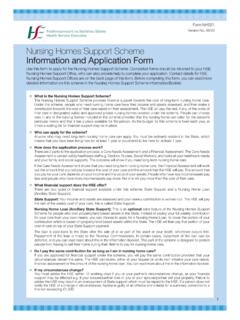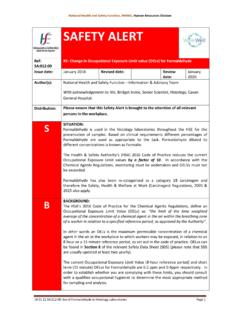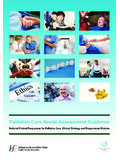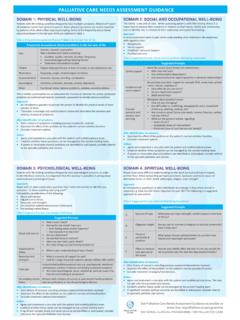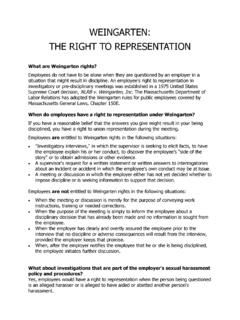Transcription of Disciplinary Procedure for Employees of the Health …
1 Disciplinary Procedure for Employees of the Health Service Executive January 2007. Contents 1. Introduction 1. 2. Purpose ot the Disciplinary Procedure 2. 3. Principles 3. 4. Pre Procedure Informal Counselling 4. 5. Formal Procedure 5. Stage 1 Oral Warning 5. Stage 2 Written Warning 5. Stage 3 Final Written Warning 6. Stage 4 Dismissal or Action Short of Dismissal 6. Serious Misconduct 7. Notifying the employee of the Allegation 8. Protective Measures 8. Investigation 8. Disciplinary Hearing 9. 6. Appeals under Stage 4 11. Appeals against Disciplinary Sanctions Short of Dismissal 11. Appeal against Dismissal Decisions 11. Ad Misericordium Appeal 12. Appendices Appendix 1 - Probationary Employees 13. Managing the Probationary Process 13. Appendix 2 - Conducting a Disciplinary Hearing 15. Notification Requirements 15. Conducting the Disciplinary Hearing 16. Issuing Warnings Under the Disciplinary Procedure 17. Follow-up Action 17.
2 Removal of Warnings 17. Appendix 3 Investigation 18. Steps in Conducting the Investigation 18. 1. Introduction The Health Act, 2004 established the Health Service Executive which replaced the Health boards and subsumed a number of agencies. It also repealed sections 22, 23 (i) (ii) (iii) and 24 of the Health Act, 1970 which dealt with the suspension and dismissal of permanent Health board officers. A. subsequent agreement with IMPACT provided for revisions to the Disciplinary Procedure which would provide for protections not any less favourable than those enjoyed under the Health Act, 1970 but would be suitably modified to suit the new circumstances. In this connection a revised Disciplinary Procedure for Employees of the HSE was agreed between the HSE-EA and Health service unions. This Procedure covers all HSE Employees with the following exceptions: n Probationary Employees (see Appendix 1 for Procedure to apply to probationary Employees ).
3 In cases of allegations of serious misconduct being made against a probationary employee , however, the matter will be investigated in accordance with stage 4 of this Disciplinary Procedure . n Employees on fixed term/specified purpose contracts whose employment is terminated by reason of the expiry date/cessor of the purpose of the contract. n Consultants covered by the Common Contract. n Medical doctors and dentists regarding complaints of professional misconduct and/or clinical capability which will be addressed through a separate Procedure . General Practitioners participating in the General Medical Services (GMS). Scheme and those specialising in substance abuse who are covered by separate procedures outlined in their contract.. This Procedure is effective from 1 January 2007 and supersedes the Grievance and Disciplinary Procedure for the Health Service (2004). Voluntary Hospitals, the Intellectual Disability sector and Specialist Agencies continue to be covered by the Disciplinary Procedure for the Health Serivce 2004.
4 2. Purpose of the Disciplinary Procedure The delivery of a high quality Health service requires all Employees to adhere to high standards of work performance, conduct and attendance. The purpose of this Disciplinary Procedure is to ensure that all Employees adhere to the required standards by making them aware of any shortcomings and identifying how the necessary improvements can be achieved. The key objective is to assist the employee to maintain the required standards, rather than impose penalties. Line managers are responsible for making Employees aware of the standards of attendance, work and conduct expected from them and for dealing with shortcomings promptly and fairly. In general, the employee 's immediate supervisor/manager will deal with deficiencies on an informal basis through discussion, counselling and appropriate assistance rather than through the formal Disciplinary Procedure . If, following the informal counselling stage, the employee continues to fail to meet the required standards then the Disciplinary Procedure should be invoked.
5 Examples of conduct which may lead to Disciplinary action under this Procedure include: n Persistent poor timekeeping n Unsatisfactory attendance record n Poor work standards n Breach of Health and safety rules n Bullying, harassment or sexual harassment (following a complaint being upheld under the Dignity at Work Policy). n Breach of internet/e-mail policy and other electronic communications policy n Refusal to obey reasonable instructions n Negligence . n Abuse of patient/client (following a complaint being upheld under the Trust in Care Policy). This is separate from claims of negligence associated with personal injury claims 3. Principles The following principles apply to all stages of the Disciplinary Procedure : n Every effort will be made by the employee 's immediate supervisor/manager to address shortcomings in work standards, conduct or attendance through informal counselling without invoking the Disciplinary Procedure .
6 N While the Disciplinary Procedure will normally be operated on a progressive basis, in cases of serious misconduct the manager may bypass stages 1, 2 and 3 of the Procedure . n No decision regarding Disciplinary action will be made until a formal Disciplinary hearing has been convened and the employee has been afforded an opportunity to respond. n The employee will be advised of his or her right to be accompanied by a work colleague or trade union representative at any meeting under the Disciplinary Procedure . n The employee will be advised in advance of the Disciplinary hearing of the precise nature of the complaint against him or her and will be given copies of any relevant documentation. n The employee will be afforded the opportunity to state his or her case and challenge any evidence that may be relied upon in reaching a decision. n The manager will not prejudge the outcome of the hearing and will take into account any mitigating circumstances before deciding on appropriate action.
7 N It will be considered a Disciplinary offence to intimidate or exert pressure on any person who may be required to attend as a witness. n An employee may appeal the outcome of the Disciplinary hearing.. 4. Pre Procedure Informal Counselling Every effort will be made by the employee 's immediate supervisor/manager to address shortcomings in work standards, conduct or attendance through informal counselling without invoking the Disciplinary Procedure . The purpose of counselling is to ensure that Employees understand what is expected from them and to provide an opportunity to discuss any aspects of the job which may be causing them difficulties in achieving the required standards. The formal Disciplinary Procedure is normally only invoked where this fails to bring about the required improvements. The counselling interview should be conducted as follows: n The employee shall be given precise details of the specific aspects of his or her attendance, work or conduct that require improvement.
8 N The employee shall be given an opportunity to respond to complaints and careful consideration shall be given to any explanations given. n Having made the employee aware of deficiencies in his/her attendance, work or conduct, the supervisor/manager in consultation with the employee shall identify appropriate measures that can be taken to assist the employee and formulate an action plan for achieving the required improvements. n Details of the counselling interview and any follow-up action agreed shall be documented and signed by both parties.. 5. Formal Procedure Where an employee 's conduct, attendance or work does not meet the required standards despite informal counselling, the matter will be dealt with under the Disciplinary Procedure . While the Disciplinary Procedure will normally be operated on a progressive basis, in cases of serious misconduct the manager may bypass stages 1, 2. and 3 of the Procedure . The stages of the Disciplinary Procedure are as follows: Stage 1 Oral Warning An employee whose work/conduct/attendance falls below the required standards will normally be issued with a formal oral warning for a period of six months.
9 The warning will give details of the precise nature of the complaint, the improvements required and the timescale for improvement. S/he will be advised that the warning constitutes the first stage of the Disciplinary Procedure and failure to improve within the agreed timescale may result in further Disciplinary action under stage 2 of the Disciplinary Procedure . A record of the warning will be kept on the employee 's personnel file and will be removed after six months, subject to satisfactory improvement during this period. The employee will have a right to appeal the oral warning to a level of management higher than the original decision-maker. Appeals must be made in writing setting out the grounds for appeal within 7 days of the employee being notified of the decision. Stage 2 Written Warning If the employee fails to make the necessary improvements or if the nature of the unsatisfactory performance/conduct is more serious, s/he will normally be issued with a formal written warning for a period of 9 months.
10 The written warning will give details of the complaint, the improvements required and the . timescale for improvement. The employee will also be advised that failure to improve within the agreed timescale may result in the issuing of a final written warning under stage 3 of the Disciplinary Procedure . The warning will be removed after 9 months, subject to satisfactory improvement during this period. The employee will have a right to appeal the written warning to a level of management higher than the original decision-maker. Appeals must be made in writing setting out the grounds for appeal within 7 days of the employee being notified of the decision. Stage 3 Final Written Warning If the employee fails to make the necessary improvements, s/he will normally be issued with a final written warning for a period of up to 12 months (this period may be extended in exceptional circumstances). The warning will give details of the complaint, the improvements required and the timescale for improvement.
